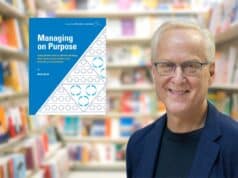Last week, I mentioned it was the 25th anniversary of TSSC — formerly known as the Toyota Supplier Support Center (it's now called the Toyota Production System Support Center). TSSC helped Children's Health in Dallas learn how to reduce CLABSI infection rates 75%:
Toyota Helps Children's Health Dallas Reduce Some CLABSI Infections 75%
In this article from Toyota, they interview Jamie Bonini, who I've mentioned before here on the blog:
As it celebrates its 25th anniversary, TSSC VP Jamie Bonini talks about how the group shares TPS with outside organizations
Some highlights:
Bonini says Toyota started TSSC partially in response to increased interest in Toyota after the publication of The Machine That Changed the World. Their approach was hands-on learning and coaching at organizations:
“So TSSC was created systematically share the Toyota Production System in North America with interested outside organizations. We knew you have to learn TPS by doing it, hands on. If you wanted to support organizations you had to be willing to work in their organizations side by side.”
Bonini says they've learned a lot about how to apply TPS in settings outside of manufacturing. The introduction often takes place through an initial classroom workshop before organizations are selected for the on-site teaching and coaching.
“Since 1992 we've completed over 350 projects. This year we'll be active and onsite in over 50 organizations. About 30 will be nonprofits and about 20 will be small to mid-size manufacturing companies.
Our group is 16 people who work on TSSC full time. Each person at TSSC will work on three projects at one time. So three weeks of the month they're on site at a project, and one week they're either conducting a workshop or training session.”
In the article, Bonini talks about their approach of starting in a pilot area to solve a particular problem.
This seems like a good extension of Taiichi Ohno‘s advice from his book to “start from need” and to focus on “your most pressing needs.”
“Generally, when we first get exposed to an organization, there are two things we're looking at. First, what is the product or service this organization is providing to their customers? Secondly, we spend a lot of time with the organizations asking them what they would like to improve. Once that's clear, we start thinking about what areas in the process we can improve to make the whole process stronger.”
Toyota takes them through cycles of learning until the organization becomes more self sufficient and internalizes this approach.
Note that Bonini doesn't spout some of the usual “Lean dogma” about “always starting with 5S” or what have you. The focus is on going to see and solving problems together. They don't say “always start with a SIPOC” ala some Lean Sigma practitioners (I'm not sure Toyota uses that specific tool). Bonini doesn't say “always start with a Value Stream Map” (again, I'm not sure if they use that tool).
When you watch videos about Toyota helping organizations, it's clear that Toyota is coaching on the improvement method, not coming in as the expert to tell people how to fix things.
Video: Toyota Helps Harbor-UCLA Medical Center and Their Eye Clinic
Video: Toyota Helps a NYC Food Bank & Hurricane Sandy Victims
The talk about embracing a new philosophy reminds me of language W. Edwards Deming used.
In the interview, Bonini emphasizes that the:
“Toyota Production System is an organizational culture that is created and sustained by an integrated system of three things that work together.”
The article elaborates on those three things a bit, but they are:
- Basic philosophy
- Technical methods
- Managerial role
I've blogged about this before after meeting Bonini and hearing him speak:
Lean: The Toyota Production System is Mainly About the Philosophy
They also asked Bonini about how to teach TPS to the new employees they are adding (something that's been an ongoing challenge as they grow):
We have a lot of new people at Toyota. How can we share the pillars that we live by?
“When we work with outside organizations, we emphasize that you learn TPS hands on, by doing. You learn the philosophy by living the philosophy. So you learn TPS the same way you learn to ride a bike or swim. You learn the basic concepts, but then you have to keep trying. The people that are newer to the company will learn and experience the Toyota Way by doing it. They'll do it by applying it to their work. They'll do it by seeing how the company responds to various challenges. And over time it'll take root through experience. And that's the challenge of all leaders here, to build the type of culture where people get those experiences.”
As people say, you don't learn how to ride a bike by reading a book about Lance Armstrong…
What are your reactions to Bonini's comments and Toyota's approach through TSSC?
Please scroll down (or click) to post a comment. Connect with me on LinkedIn.
Let’s work together to build a culture of continuous improvement and psychological safety. If you're a leader looking to create lasting change—not just projects—I help organizations:
- Engage people at all levels in sustainable improvement
- Shift from fear of mistakes to learning from them
- Apply Lean thinking in practical, people-centered ways
Interested in coaching or a keynote talk? Let’s start a conversation.








![What’s Your Organization’s Real Mistake Policy? [Poll]](https://www.leanblog.org/wp-content/uploads/2025/07/Lean-Blog-Post-Cover-Image-2025-07-17T085114.134-100x75.jpg)
